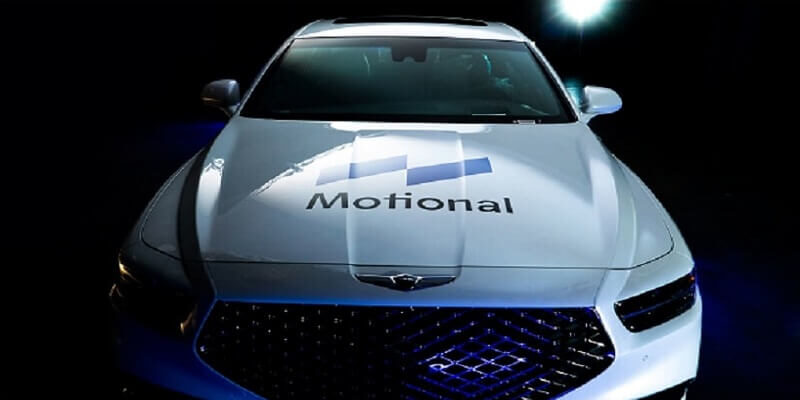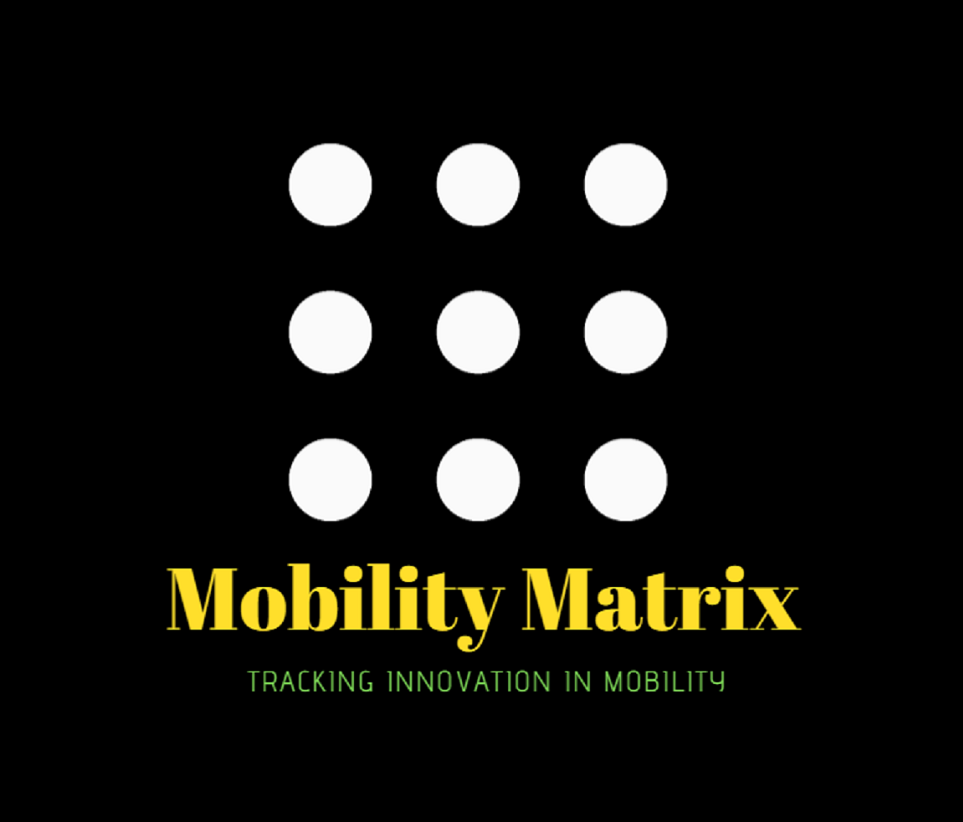
Autonomous Vehicles
Motional autonomous vehicles on Nevada Roads
Motional, the Aptiv-Hyundai joint venture has received approval from the state of Nevada to run its driverless vehicles on its public roads. The company has said that it will undergo self-imposed testing and assessment period before launching its vehicles on the road. The driverless car technology company Motional is based in Boston, with teams in Pittsburgh, Las Vegas, Santa Monica, Singapore, and Seoul. The Motional team was behind some of the industry’s largest leaps forward, including the first fully-autonomous cross-country drive in the U.S, the launch of the world’s first robotaxi pilot, and operation of the world’s most-established public robotaxi fleet.
Uber may sell its autonomous vehicle unit to Aurora
Uber may sell its autonomous vehicle unit to startup competitor Aurora Innovation, according to a report by TechCrunch. The unit valued at $7.25 billion as recently as last July, but has struggled to make significant progress toward a fully-autonomous vehicle and has always been surrounded in controversies. The company has however refrained from making any comment claiming these to be rumors.
Honda to mass produce sensor-packed level 3 autonomous cars
Japan’s Honda Motor plans to mass produce sensor-packed level 3 autonomous cars before the end of March 2021, according to a report by Reuters. The vehicle will be equipped with the newly approved automated driving equipment that will allow drivers to let their vehicles navigate congested expressway traffic. The report says the vehicle selected will be a luxury sedan
Connected Cars
Elektrobit Supports BlackBerry QNX OS
Elektrobit corbos AdaptiveCore 2 software now supports the BlackBerry QNX Software Development Platform 7.1 for building high-performance computing (HPC)-based automotive architectures.
EB corbos AdaptiveCore 2 is the basic software for running Adaptive AUTOSAR. Together, EB’s implementation of the AUTOSAR Adaptive Platform and BlackBerry QNX ISO 26262 ASIL D certified OS and Hypervisor technology, according to the companies, will give automakers and Tier 1 suppliers a complete, pre-integrated foundation for developing secure vehicle electronic control units (ECUs) with the highest levels of safety.
NXP Collaborates with Amazon Web Services (AWS) to Extend Connected Vehicle Opportunities
NXP Semiconductors has announced a strategic relationship with Amazon Web Services (AWS) focused on extending the opportunities of connected vehicles. The collaboration aims to deliver a secure, edge-to-cloud compute solution for next-generation vehicles that can enable new cloud-powered services to benefit carmakers, their business partners and consumers alike.
Data will fuel future vehicle innovations as the automotive industry shifts focus from horsepower to compute power. To realize the promising services of future connected vehicles, the automotive industry requires a new type of compute solution with centralized access to vehicle-wide data that can work securely and collaboratively with the cloud. The integration of AWS edge and cloud services with NXP’s new S32G vehicle network processor for service-oriented gateways claims to address the challenge.
The NXP S32G processor leverages AWS IoT Greengrass and AWS IoT Core for vehicle and cloud data processing and storage, as well as Amazon SageMaker and Amazon SageMaker Neo to build, train and deploy optimized ML models. Deep learning inferencing in the vehicle is supported by NXP’s ASPICE-qualified eIQ Auto toolkit. Initial S32G platforms have been qualified for AWS IoT Greengrass, and Yocto meta-layer support is available to enable automotive customer innovations today.
Voyomotive and CerebrumX joint venture for new UBI/Insurtech solutions
Voyomotive and CerebrumX are working together to develop new applications for the automotive usage-based insurance (UBI) sector. As the majority of UBI programs are based on simple metrics such as time, location and accelerometer data, the Insurtech market is ready for a new generation of applications that utilize data analytics linked directly to embedded vehicle data. The combined benefit of this innovative approach, according to the companies, will be new dynamic pricing models for Pay As You Drive (PAYD) and Manage How You Drive (MHYD) policies while providing real time insights that increase driving safety.
Electric Mobility
Scania builds battery laboratory
Scania is investing EUR 15.5 million in a new battery laboratory at its research and development facilities in Södertälje, Sweden. The company plans rapid introduction of electric vehicles over the coming years so there is a concurrent need to intensify battery testing and tailored deployment. The laboratory will have test halls for battery cells, modules and packs.
The lab will primarily focus on battery performance and lifespan evaluation in varying climate conditions from -40°C to 70°C. The engineers will examine and identify the best operational conditions for the battery with regard to, for example, temperature setpoint, state of charge window and charging power profile for tailored utilisation in optimising battery life and customer needs.
Toyota introduces PROACE Verso Electric
Toyota is introducing zero emission battery electric vehicle range with the new PROACE Verso Electric in early 2021. The new model will offer the choice of two lithium-ion batteries to suit their requirements: a 50 kWh unit that can provide a driving range of up to 230 km on a full charge and a 75 kWh battery for up to 330 km driving. Maximum speed is electronically controlled to 130 km/h.
All PROACE Verso Electric versions are fitted with 7.4 kW single-phase onboard charger as standard. This can be optionally upgraded to an 11 kW unit if faster charging is needed. When the vehicle is connected to a 100 kW charging station, the 50 kWh battery can be recharged in around 30 minutes and the 75 kWh battery in about 45 minutes.
DENSO Takes a Stake in EV Startup Envoy
DENSO has taken a stake in Envoy Technologies, an electric vehicle (EV) startup based in Culver City, California, that offers mobility services to the commercial real estate (CRE) industry. Founded in 2017, Envoy partners with CRE industry leaders to offer onsite mobility services like electric carsharing and EV charging for apartments, offices, and hotels. Through the investment, DENSO aims to create new revenue streams by offering the benefits of Mobility-as-a-Service (MaaS) to businesses, helping them move employees, customers and things more efficiently and safely.
KPIT’s Strategic Large Deal with BMW Group on Charging Electronics ProgramKPIT, an independent software development and integration partner to the automotive industry – has announced signing of a large-scale order with BMW Group. The series order is spread over several years.
MicroFuzzy, A KPIT group company, a specialist in vehicle electrification engineering along with KPIT’s electric powertrain team will be at the forefront of executing this strategic software program and represents the first step for the BMW Group in establishing strategic software development partners for automotive software.The combined powertrain coordination unit is designed to power the next generation power electronics architecture of BMW Battery Electric Vehicles (BEV’s) and involves software development, integration, and maintenance. The integrated charger unit is an onboard charger that is combined with the vehicle control unit.
As part of the strategic collaboration, KPIT has been nominated as the single source software integration partner for the next generation 11KW combined charging electronics program powering the upcoming BEV’s of BMW Group. MicroFuzzy and KPIT will perform the role of a strategic software partner and will be responsible for complete development, integration, validation and series software maintenance, to accelerate the technologies a future electric vehicle requires.India
Maruti Suzuki invites entries from startups for its MAIL initiatives
Maruti Suzuki has invited entries from startups for the fifth cohort under its Mobility & Automobile Innovation Lab (MAIL) initiative. The company’s innovation program MAIL (Mobility & Automobile Innovation Lab) co-creates technological & digital solutions for the Indian automobile industry. The program aligned with the Government’s vision of Startup India has engaged with 18 startups since January 2019. It has already enabled 10 PoC (proof of concepts).
PURE EV’s long-range escooter Etrance Neo to be launched next month
IIT-Hyderabad incubated startup PURE EV’s high-speed long-range electric scooter Etrance Neo will be launched next month at an ex-showroom price of Rs 75,999.
The new model that offers a higher pickup and longer range combined with modern aerodynamics will be launched on December 1, 2020. It comes with a patented battery and in-house technical developments for BTMS (battery thermal management systems) to ensure long life and high performance, the company said in a statement. The company is targeting sales of 10,000 units of this model in the first one year alone, he noted.
The Etrance Neo offers a pick-up speed of 0 to 40 kmph in five seconds. It is powered by a 2,500 Wh-patented battery with a range performance of 120 KM for a single charge in ”Eco Mode”, the company said, adding the “scooter chassis is designed for higher speeds at par with the conventional ICE (Internal Combustion Engine) two-wheelers”.
PURE EV has a manufacturing capacity of 2,000 EVs per month and a battery production capacity of 10 MWh per month. It has dealers in 100 locations across 20 states and recently launched its products in Nepal. (PTI)
Source: Press Releases, Media Reports, News Agency
